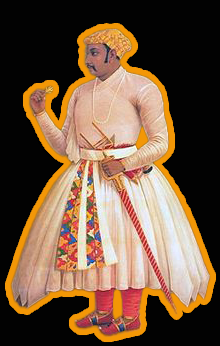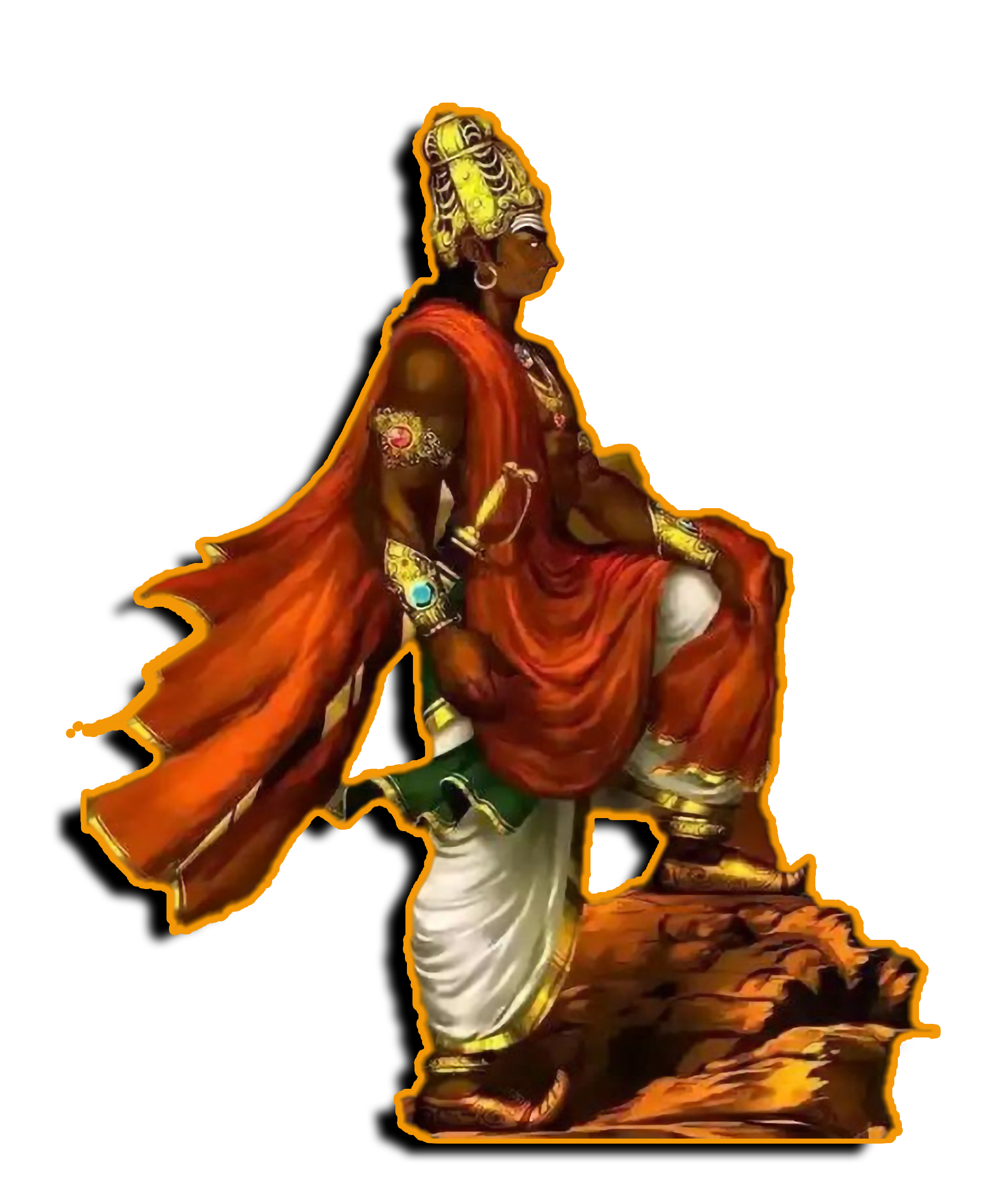Let us discover the story of Raja Jaichandra. We will discuss the historical facts that proof Raja Jaichandra was NOT a traitor.
We all love to read and study autobiographies of legends, patriots, and historical persons. These kinds of stories not only inspire us but also make us aware of our legendary Indian History.
Introduction
History always seems to be a mystery, the more we dig into any individual personalities the more we come to release that it is not easy to ignore the legacy of these heroes. Legends, patriots, self-respectful, ambitious, and brave are some of the very common tags we do attach to these historical heroes based on the decisions they have taken in the past. These decisions are judged according to the decisions they have taken in the past. But what has happened in past and in what circumstances we don't know and we judge people based on certain incidents. That certain decision can tell good or bad deeds about the character or personality of individuals. To characterize someone takes a whole life to understand and yet we may not know completely about them. One or two incidents could not either deteriorate or rejuvenate someone's whole character.
Today with this blog over Raja Jaichandra, I am trying my best to bring you the facts that may justify the glory of this great warrior.
Was Jaichandra a traitor? As this topic is about Jaichandra was not a traitor. We will talk about this in detail. Since childhood, we have been listening that the greatest traitor in Indian history is Raja Jaichandra. Many fabricated stories tell unverified facts, but what exactly happened is not 100% true, besides people have babbled exceedingly negatively about him due to which Jaichandra's name has become an analogue to terrorism.
Even, people have stopped giving this name to their loved ones. Was he such a great defector? If he was then what was the reason lies behind it? Why he is labelled with such a noisome tag? Let us discover.
His Family History, Early Life, and Achievements
Raja Jaichandra was the king of the Gahadavala dynasty of Northern India. He is also known as Jayachandra. He ruled the Antarvedi country in the Gangetic Plains including Kannauj and Varanasi. His territory included much of present-day eastern Uttar Pradesh and some parts of western Bihar. He was the last ruler of the Gahadawala dynasty. He was the son of the Gahadavala king Vijayachandra. According to a Kamauli inscription, he became the king on 21 June 1170 CE and began his reign. Jaichandra inherited his grandfather Govindchandra's royal titles. He was born on the day when his grandfather Govindchandra conquered Dasharna (Malwa) in the west. Therefore he was named Jaichandra. According to Naychandra's book Rambhamanjari, his mother's name was Chandralekha she was the elder daughter of Angapal Tomar but according to Prithvi Raj Raso, his mother's name was Sundari Devi. It is also stated after getting the throne he struggled and fought against Muslims in the Sindhu river with great courage and determination that the blue of the river turned red. This is not just one tale of an event where he showed his bravery besides there are many battles he had fought and conquered. In Purush Pariksha the great book of Vidyapati has inscribed that Jaichandra had defeated Yavaneshwara Sahabuddin Ghauri successively on the battlefield. In Rambhamanjari it is also drafted about his victory over Yavanas.
Now coming to the point of why Raja Jiachandra was denoted as a traitor. According to historians and educationists, Jaichandra was a cousin of Prithvi Raj Chauhan and the majority of people say Sanyogita was a daughter of Jaichandra who eloped with Prithvi Raj Chauhan and married him. Hence to take revenge on Prithviraj Chauhan, Jaichandra invited Mohammad Ghori and associated him in the fight against him. But this tale is completely fictitious and inconsiderable.
If we study history diffusely we will find the facts and truth. In the 12th century, the Indian region was vast and extensive, there was no Pakistan and Afghanistan separated. At that time Mohammad Ghori had already been ruling Multan and Sindh. He set his feet in Bharat in 1175 and conquered Multan which is Pakistan currently. After Multan, he conquered Western Sindh also. Both parts of the Indian region were not under the province of Prithvi Raj Chauhan. Therefore saying Jaichandra had summoned Ghori to India is a falsehood because he had already been ruling in some parts of India. There was no relation between them at that period.
After getting victory over Multan and Sindh, Gouri moved towards Gujrat. He fought with the ruling king Bhima II, a member of the Chaulukya or Solanki dynasty in 1178 but he could not defeat him and fled from there. Ghori was so ambitious and allured with the prosperity of India that he wanted to rule all over India. Hence, he did battle with Prithvi Raj Chauhan in 1182 but could not conquer it. Afterwards, they had only two huge fights which happened in 1191 and 1192. Several epics and books tell various battles and confrontations about them but nowhere name of Jaichandra is given.
Battle of Tarain 1 -
The first battle of Tarain was fought in 1191 between the Ghurid army led by Muhammad of Ghor and the Rajput confederacy led by Prithi Raj Chauhan near Tarain (presently in Haryana). From Ghurid Army Muiz-Al-din(Muhammad Ghori) and Gyas-Al-din, two Muslim brothers were leading the armies. They aimed to control the whole of Bharat and establish it as a Muslim Country. After the decline of the Ghaznavid Empire in the 12th century, various tribes struggled with one another for getting control of the Empire. Among them, Ghori succeeded to win his aim. Soon they moved towards expanding their empire. At that time northern India was a collection of loose states. Out of them only the Chalukya Dynasty in Gujrat, the Solanki Dynasty of Jaichandra in Kannauj, and the Rajputs of Ajmer and Delhi had a good number of powerful armies. At first, Muhammad Ghori sent an envoy of settlement to the court of Prithvi Raj Chauhan about the conversion to Islam and to accept the suzerainty of the Ghurids. Prithvi Raj Chauhan refused the settlement which resulted in the first war of Tarain. During the battle, Prithvi Raj Chauhan had a valorous army that responded immediately with an all-out attack that surprised the Ghurids. As a result, Muhammad Ghori was defeated brutally by Chauhan's army and ran away from there.
Battle of Tarain 2 -
The second Battle of Tarain was fought in 1192 just after one year of Tarain's First battle led between Muhammad Ghori and Prithviraj Chauhan. This battle is regarded as the destruction of Rajput power and the foundation of Muslim rule in India. In the first battle, Rajput Confederacy defeated to Ghurid forces miserably. Muhammad Ghori was seriously injured and could not abide his defeat. He designed a conspiracy to take revenge on Chauhan. Therefore, the Battle of Tarain 2 had come off at the same place in 1192 which laid the devastation of the Rajput Empire. The battle ended in a conclusive victory for invading Ghurids and their successful penetration into the north Indian plains.
Mohammad Ghori was determined to establish his territory all over India. In his first battle with Prithvi Raj Chauhan, he faced defeat. He was very humiliated and disheartened by his defeat. This time he increased his army and strength and prepared to take revenge on Chauhan. This resulted in the second battle of Tarain in 1192 AD. In this battle, Chauhan got defeated. Now Ajmer was captured by Ghori where he established a Muslim kingdom. This victory gave him confidence and determination. He prepared the ground to invade Gahadavala's kingdom. This resulted in the battle of Chandawar where Jaichandra was defeated and killed by the Ghori force.
It is spread that in the second battle Jaichandra associated Ghori against Prithivi Raj Chauhan because he alone could not defeat him. But I want to raise a question here if Jaichandra helped Ghori in the second battle of Tarain then why did Ghori attack to Gahadaval Kingdom and killed Jaichandra during the war? They could conciliate also and live peacefully in their kingdoms. There are numerous erroneous facts are rolled out which we have been listening from several years and regard as truth without understanding the ground reality. The above details prove that Raja Jaichandra was a heroic king and he was not a traitor as it is wrongly disseminated.









